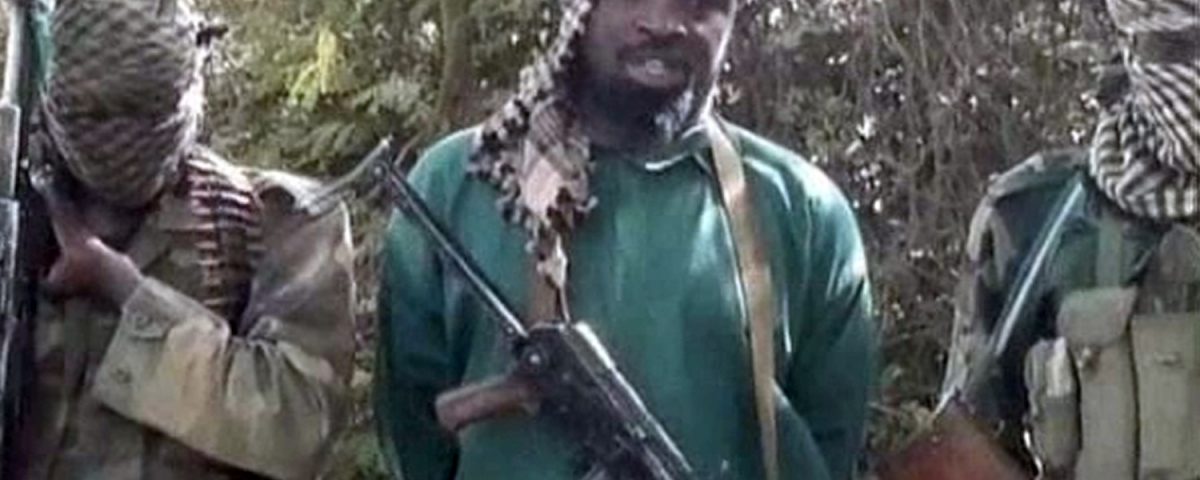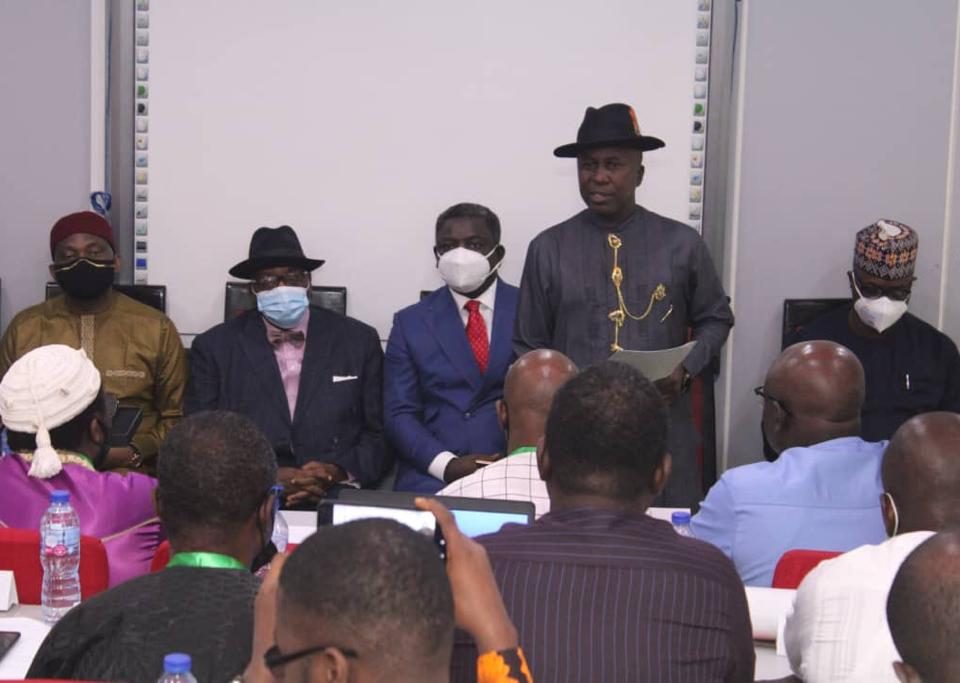
The Shame of Bayelsa
January 24, 2012
Dickson’s Fresh Momentum in Bayelsa
August 7, 2013State of Emergency against Boko Haram
By most accounts, save a few disagreeable voices of implacable opposition foes, the May 14 State of Emergency imposed by President Goodluck Jonathan on Borno, Yobe, and Adamawa States is as much a welcome development, as it is a political masterstroke. The country had been long-suffering in enduring the spiralling menace of Boko Haram in parts of the North. With thousands of human beings killed, schools razed, places of worship bombed, markets attacked, businesses destroyed, and a pall of insecurity draped over mostly the north-eastern flank of the country, it is difficult for even the most cynical to muster any plausible argument against the latest measures taken by the federal government to bring the insurgents to heel. There had been a limited state of emergency in some local governments in the not-too-distant past, coupled with equally limited security forces operation but that failed to produce the desired peace. As the Boko Haram elements shunned the calls of the Sultan for peace, ignored the pleas of northern elders for a ceasefire, and even when the government announced amnesty, the insurgents not only rejected the offer but were audacious enough to proclaim that they, a lawless set of faceless, destructive vagabonds, should be the ones to grant the government amnesty!
President Jonathan did not need to roar before he could be acknowledged as the Commander-in-Chief of the Armed Forces of the Federal Republic, yet, the unrelenting atrocities of Boko Haram had fostered the unkind impression that he was a “weak” leader. Since the security forces, as part of the state of emergency measures, began pounding the hideouts of the insurgents, killing scores, and rounding up others, while some wounded survivors are scurrying across the borders into neighbouring countries, it has become clear who is weak- certainly not President Jonathan. It is debatable whether these on-going tough measures should have come much earlier; but chances are that the government would have been criticised for being too quick to resort to force without first exhausting other soft options.
Given the recent divisive political tendencies in the land, it would have been a huge surprise if President Jonathan were able to immediately muster a broad consensus on the state of emergency which he imposed on Borno, Yobe, and Adamawa States. Yet, the most uncharitable, if not unconscionable, allegation anyone can make is that President Jonathan imposed emergency rule in the three states as a subterfuge to muzzle the opposition ahead of the 2015 general elections. Anyone who makes such a charge should also be reminded that the President had been routinely chided for not containing the insurgency. A few months ago, some politicians made a show of visiting Maiduguri, capital of Borno State, and walking the streets, in advertised solidarity with the people of the state who had borne the heavy brunt of the Boko Haram lawlessness.
Perhaps the President would have given a ready pretext to his adversaries, but for the restraint in not allowing the full consequences of a state of emergency to play out, namely, by suspending the executive and legislative arms of the governments of the three states. In the old Western Region in 1962, and as recently as the OlusegunObasanjo presidency, Plateau State (2004) and Ekiti State (2006), a state of emergency was imposed in the respective places with administrators appointed to rule, while the governors and legislators were suspended.
By leaving the governors and lawmakers of Borno, Yobe, and Adamawa while the state of emergency lasts, President Jonathan has demonstrated beyond any doubt that his motivation is a patriotic quest to bring peace to the country. It also shows his trust in the executive and the legislature in the respective states, to join in accelerating the routing of the insurgents and a concomitant return to normalcy. The real onus, in my view, thus lies with the governors and lawmakers to rally round the federal government in the peace enforcement project in their beleaguered domains.
Indeed, the times call for the patriotic fervour of all well-meaning Nigerians, wherever they may be. The times also call for us to spare a thought and prayers for the security forces and their families who are in the line of fire. Each of us returns home to the warm embrace of our families, but not so for some of the members of the security forces, who are unfortunate to lose their lives while seeking a more liveable environment for the rest of us. Ours is a country where we are quick to mouth “international best practices.”
Such “best practices” as we find in other countries is that all close ranks to confront a common enemy that seeks to make life unbearable for the law-abiding. This patriotic fervour played out after the tragic events of 9/11 and most recently at the Boston Marathon in the United States. More importantly, it should be remembered that a state of emergency and a war on terror, such as is being waged against the savage insurgents who wantonly violated the rights of others, will impact on the provisions of the constitution relating to fundamental rights. This, therefore, is not a time for trying to score cheap political points.
Part of the urgent task at hand is to win the hearts and minds of the people. Government should take this seriously, because there were earlier misgivings about the intention of the security forces. But this is not a role for the federal government alone. The state governments must also pitch in with resources and programmes, to ensure that they are able to retrieve their territory from the clutches of the insurgents, and then have the people back them (the government), when the no less arduous task of reconstruction begins.
While emergency rule and the associated security action against the insurgents are still in their early days, history, I believe, will be kind to President Jonathan. His resounding victory in the 2011 elections was hardly announced than orchestrated riots broke out in parts of the North. In the ensuing weeks and months, the country’s security profile was tragically altered, as more incitement and violence followed, and Boko Haram, which until then had operated largely in Borno State, expanded its theatre of horror to other areas in the North. Thereafter, suicide bombing, including that against the United Nations House in Abuja in August 2011, became the norm. The cardinal objective of the sponsors and perpetrators of the violence was to make the country ungovernable for President Jonathan.
While his traducers have never proffered any reasonable antidote to the country’s security challenges, over which they regularly lambast him, President Jonathan has proceeded apace with solutions that are yielding results, no matter how much more relief the country wishes to have. But, above all, President Jonathan has not made security his only focus. By channelling the attention of the federal government, through the ministries, departments, and agencies, President Jonathan can, in mid-term, beat his chest that he has at least defeated those who sought to make the country ungovernable.
Through the smoke and din and blood of the orgy of violence and insecurity in the land, his administration has striven to lighten the burden, make government work, and achieve results. Probably no other Nigerian leader in similar circumstances has chalked up as much as President Jonathan in the two years since his election in 2011. At any rate, not since the Civil War (1967 – 1970) has the country faced as intense and prolonged an internal security challenge as that posed by Boko Haram. Now, blasting through that wall of fear and horror, and driving the Transformation Agenda, no matter the routine howlers by the opposition, is the hallmark of Jonathan’s mid-term report.
The Guardian: May24th 2013


